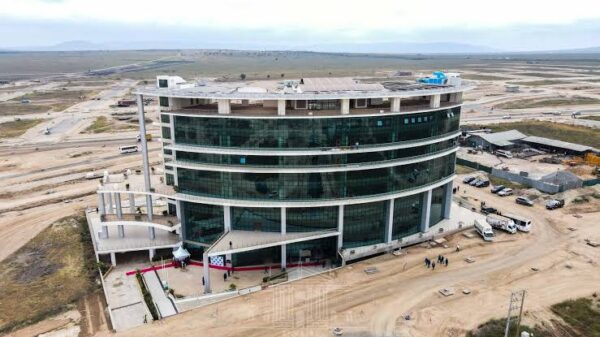
Kunle Awosika, Kenya’s Microsoft Country manager with Martina Hennessy, Microsoft Senior Project Manager.
As African countries make tremendous steps in fully integrating ICT in their economies, a technical skills shortage threatens to slow-down the continent’s localization of ICT solutions. According to a study commissioned by Kenya ICT Board in 2011, approximately 45 percent of ICT companies in Kenya say it is difficult to find capable IT staff.
The Julisha report further stated that 9600 professional will be needed to fill the Kenyan IT workforce over a period of three years, with software development and project management roles expected to see the biggest demand. The skills-gap is spread across the continent, according to Kunle Awosika, Kenya’s Microsoft Country manager.
“One clear piece of feedback we’ve consistently heard from partners is that there is a real skills gap in Africa – simply not enough people to hire with the skills needed to meet 21st century business demands. This includes ICT skills, of course, but it’s more than just that. It also includes sales, marketing and leadership skills,” says Awosika.
In an effort to bridge this skills gap Microsoft has developed a program that will equip graduates with technical and non-technical skills.
“MySkills4Afrika focuses are based on skills development as a way of building capacity within the African continent and ensure Africans are globally competitive,” says Awosika. “As a company we felt the need to critically invest in this space quite aggressively.”
Kunle insists that while 4Afrika in definitely about helping Africa grow, not about charity.
“This is a business strategy for Microsoft’s own growth on the continent as well. We believe deeply that helping Africa accelerate economic development and create jobs will help Microsoft achieve our company’s mission in Africa.”
MySkills4Afrika brings together Microsoft employees and channel partners in a skills transfer program where employees across the globe volunteer in Africa for a few weeks spending time engaging with partners and innovation and tech hubs across 17 African countries.
The program, which is part of Microsoft’s 4Afrika initiative, aims to bridge the skill gap by impacting 200,000 Africans by 2016, half of which are recent graduates while the rest are up scaled within the partner institutions.
“Our skills focus is squarely on entrepreneurship and employability, helping Africans find and create jobs. Microsoft employees volunteer across different fields that include sales, marketing, leadership, project management, public relations, Human Resource and communication and more technical areas like software engineering,” explains Awosika.
50 Microsoft staff members from 17 countries around the world joined the program early February and have mentored over 600 beneficiaries across partners, innovation hubs, NGO’s and recent graduates.
The volunteers are based across 10 African countries which Include, Kenya, South Africa, Nigeria, Uganda, Botswana, Tunisia, Morocco, Mauritius, Tanzania, and Egypt. An additional 200 will volunteer virtually.
“The selection process is very competitive and based on a combination of expertise, experience, seniority and the ability of the volunteer to champion for impact addressing challenges facing African markets,” says Martina Hennessy, one of Microsoft’s senior project managers from Ireland, volunteering in Kenya for a week.
Hennesy adds the MySkills4Afrika also helps volunteers understand the dynamics of emerging markets and how best to contribute in addressing local challenges.


































